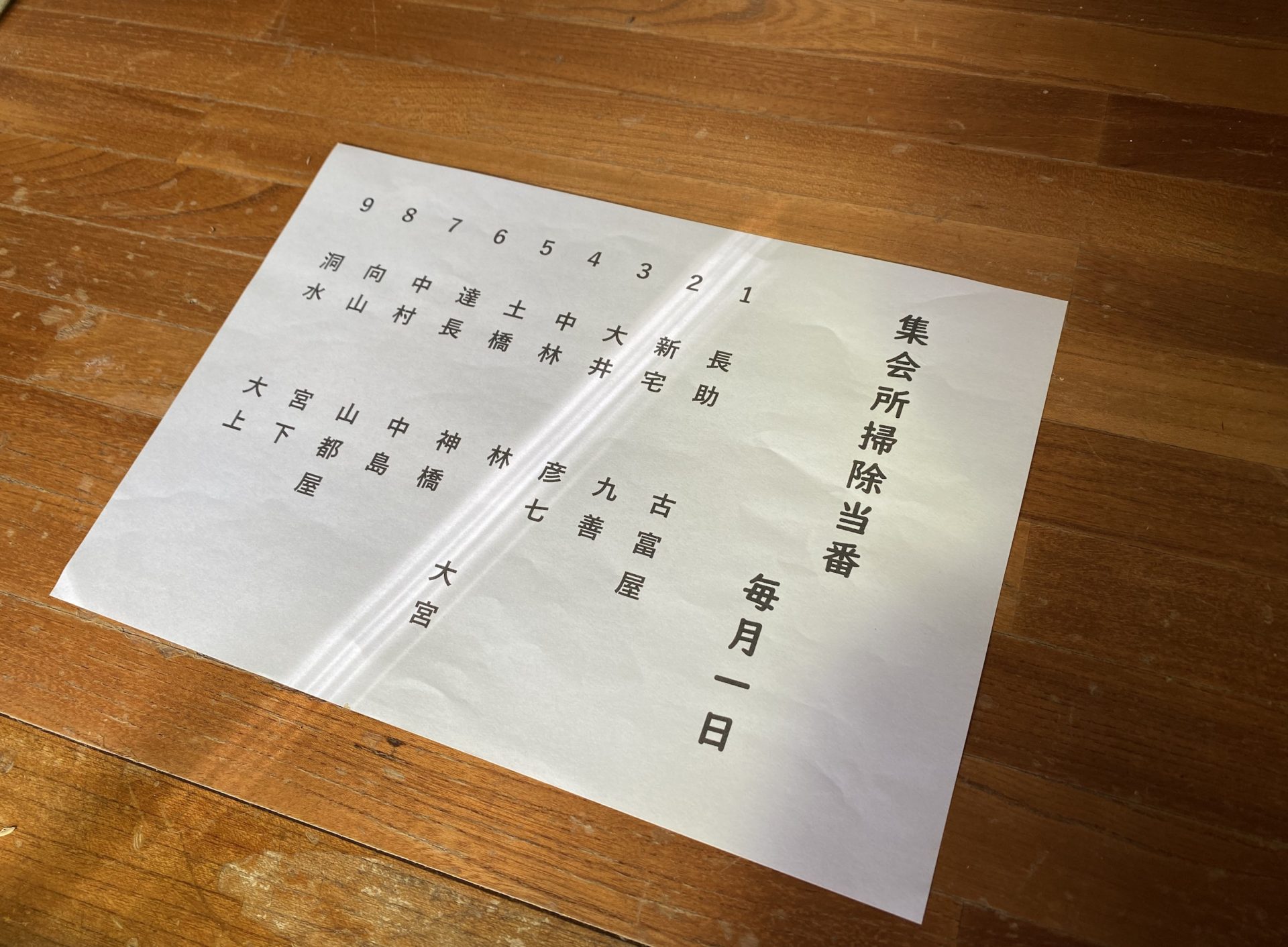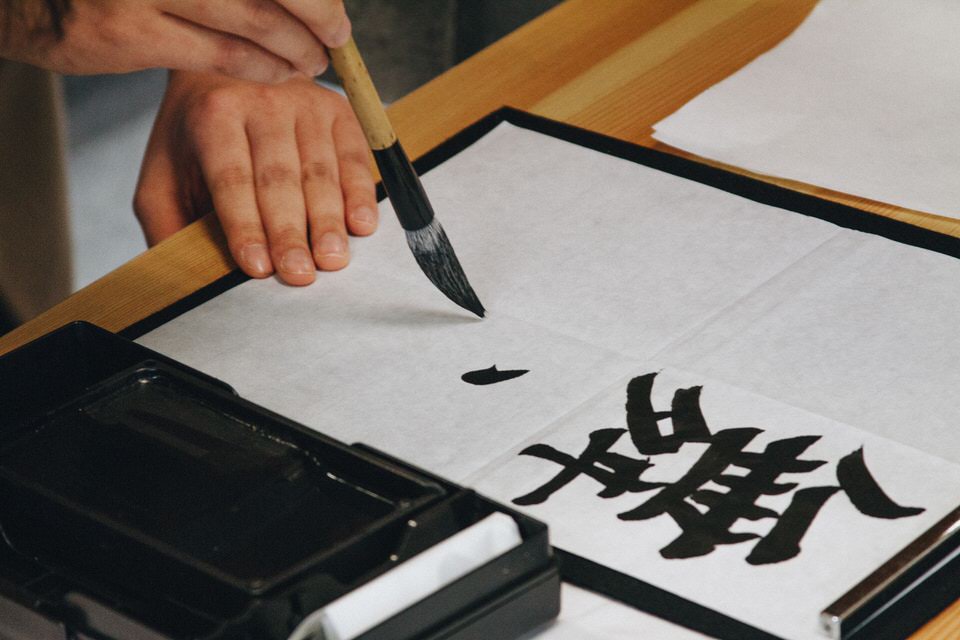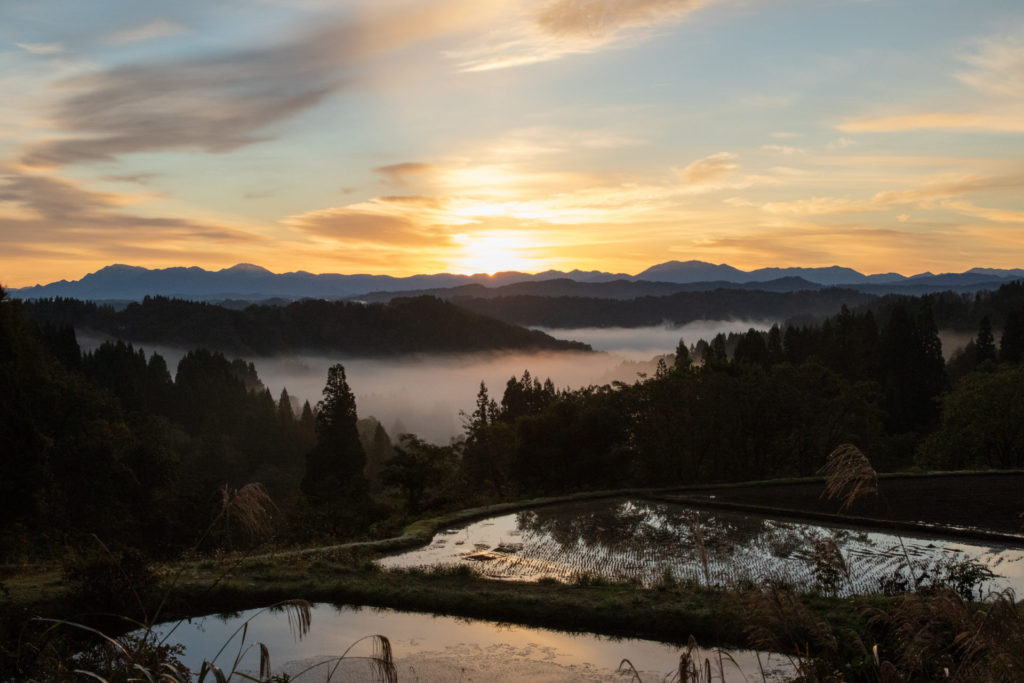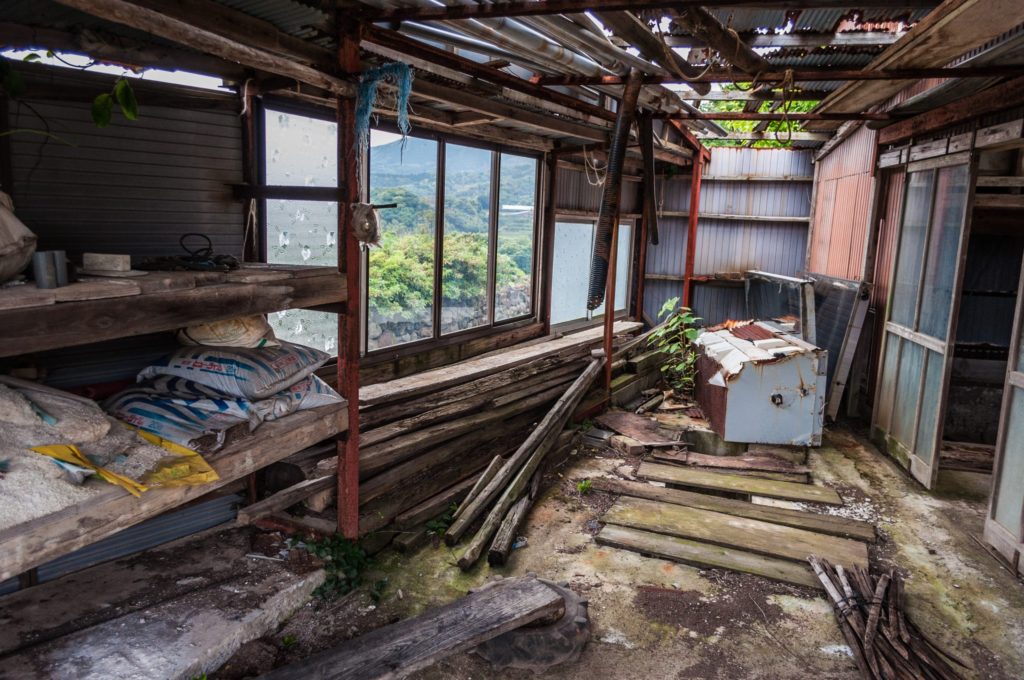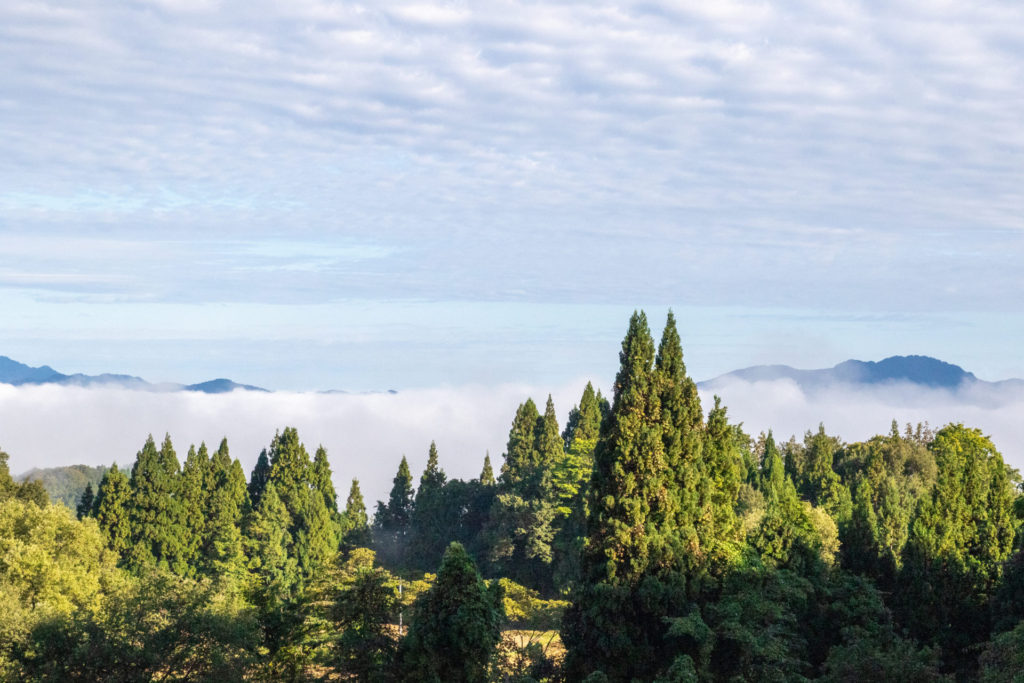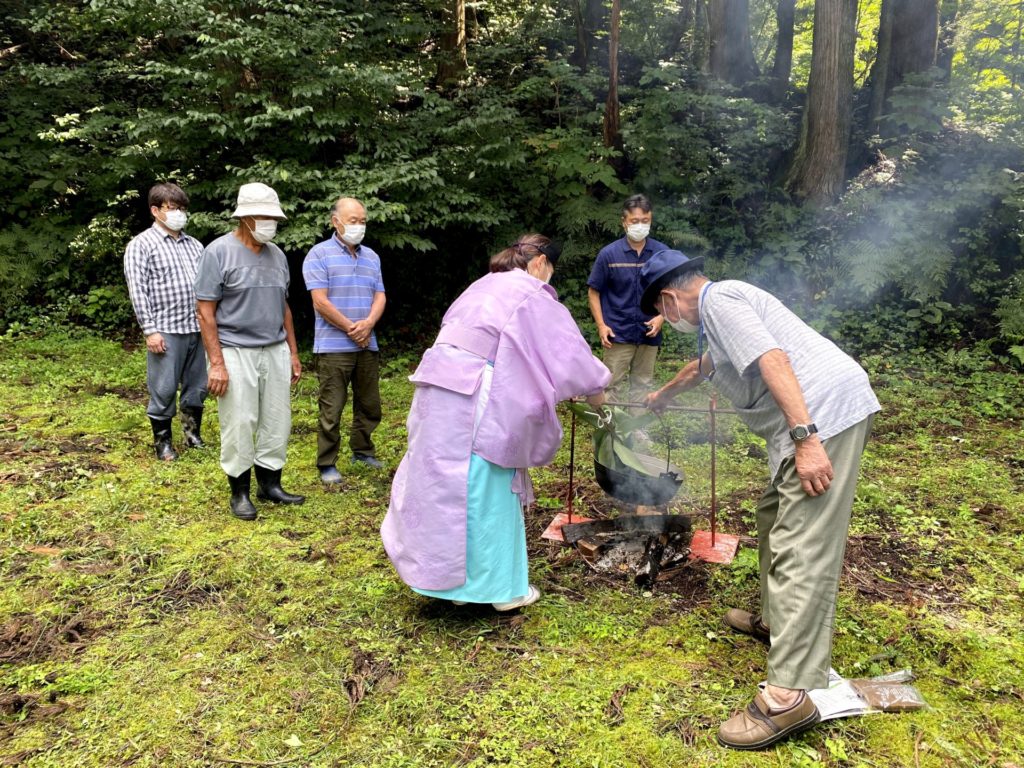When I was at a meeting to decide on the schedule for cutting the grass with locals in Kurokura, I was asked about my Yago(屋号). When Yago(屋号) is translated into English, comes out as a trade name. Today, Yago(屋号) are still used as the names of sole proprietors, but it seems that Yago(屋号) are also commonly used in rural areas. In Matsunoyama Kurokura, people write down each other's Yago(屋号) on the sign-up sheets for community activities such as shoveling snow and cleaning public facilities.
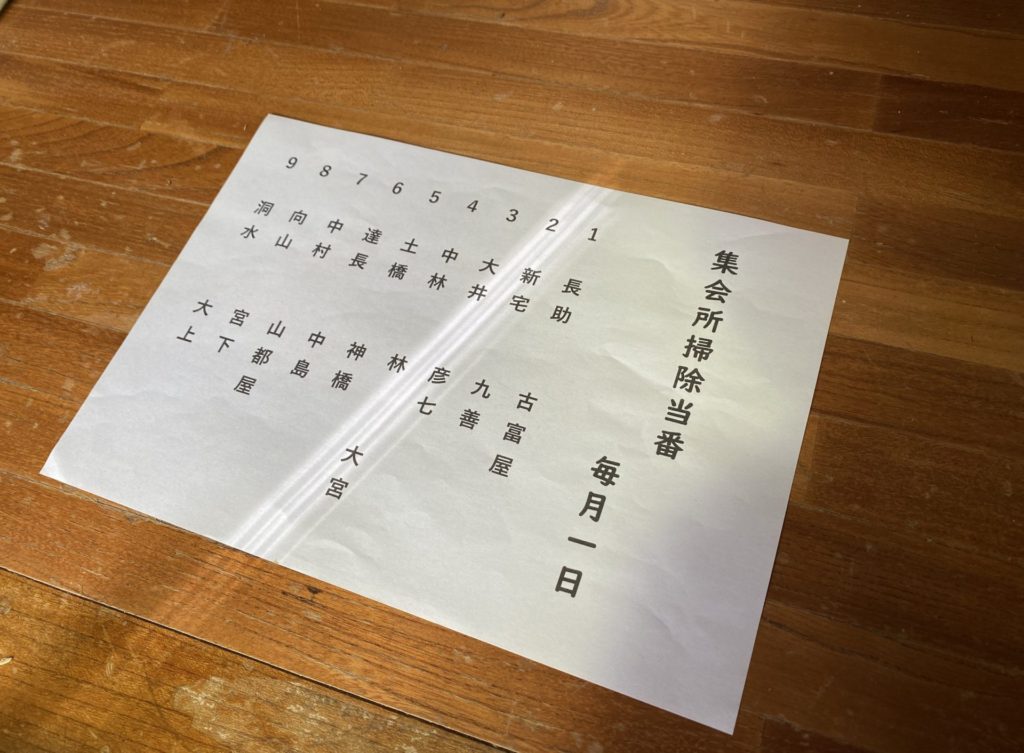
What is the meaning of the yago used in rural areas? What is a yago in the first place? Let's take a look.
What is Yago(屋号)?
In Japan, Yago(屋号) are used to identify households in communities where many people have the same surname(1). It is also said that Yago(屋号) are related to location, direction, topography, main or branch family, occupation, place of birth, and family seal(1). What is the background to the necessity of distinguishing house names?
History of Yago
There are various versions of the history of Yago(屋号).
One theory is that it originated from a name used in ancient times to distinguish each family as a member of a clan community. Another theory is that before the Meiji era (1868-1912), farmers did not have surnames, so they needed to use Yago(屋号). (In the Edo period, merchants and farmers were prohibited from having a surname due to the status system, but a decree requiring commoners to have a surname was enacted in 1875, requiring all people except samurai and noble families to have a surname. There are many theories, but it is still unclear which one is correct.
-

-
Japanese Surname List and History : How Did Japanese Surname Come About?
This page introduce the origin of the surname, the history of the surname in Japan, and the ranking of surnames in Japan. Patterns of Surname Patterns of SurnamesExample1.Surname derived from place namesWatanabe(渡辺) / Yokoyama(横山) / Sasaki(佐々木)2.Surname derived from topography/landscapeKotani(小谷 : Small Valley) / Yamaguchi(山口 : Mountain outcrop)3.Surname derived from direction / positionKamimura(上村 : Upper Village) / Nishimura(西村 : West Village)4.Surname derived from OccupationHattori(服部 : Clothing weaving occupation) / 5.Surname derived from Fujiwara clan (藤原:A powerful family in Japan)Sato(佐藤 : using same Kanji "藤")There are five patterns of origin for surnames according to Kaju.Inc According to Kaju.Inc, The most common surnames ...
続きを見る
It is said that the surnames we use today are derived from "Azana(字)" that became popular after the end of the Heian period.(2) It is said that the "Azana(字)" is made up of the "Yago(家号 [Note that different kanji are used.])" and the "name", and the "Yago(家号)" is the name of the place where the people of the family settled down, and this part of the "Yago(家号)" later became the "surname". (2) In the case of noble families, the name of the family and place of residence was used, and in the case of samurai families, the name of the territory was used for Yago (家号).
However, it is not clear whether the "Yago(家号)" mentioned here is the same as the "Yago(屋号)" in rural areas.
Is Yago(屋号) an expression of camaraderie within the community?
It is interesting to point out that Yago(屋号) are filled with a sense of familiarity, and have the property of facilitating the interaction among people. (1)
Yago(屋号) is a name that is shared only among people living in a particular area. Also when people in rural areas work in the fields and rice paddies, they often have conversations including land information such as, "The fields over there are ~" or "The rice paddies over there are ~" and it is likely that they are attached to the local land.
I felt that if Yago(屋号) is rooted in the land, it is part of that attachment, and the name is used in a friendly way.
Japanese live in big city rarely call each other by their Yago, and usually by surname or first name.
I'm still not sure if this is a tradition in the local area, or a way of calling people with affection. However, there must be a reason why people use a name other than their own. I am sure that the fact that I can have my own Yago(屋号) has made me feel like a member of the community.
Reference: (1) Nobuko Okano, 屋号語彙の開く世界(生活語彙の開く世界 10) (2) Mariko Tamanoi, 日本農村地域における「屋号」研究の可能性 (1985)

